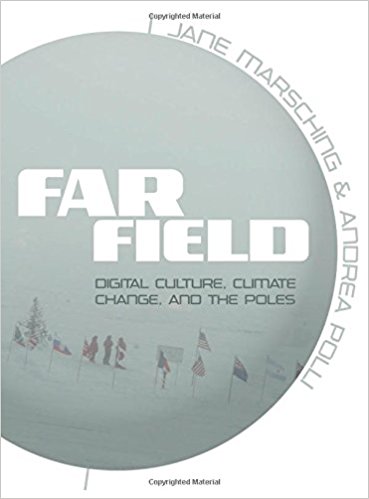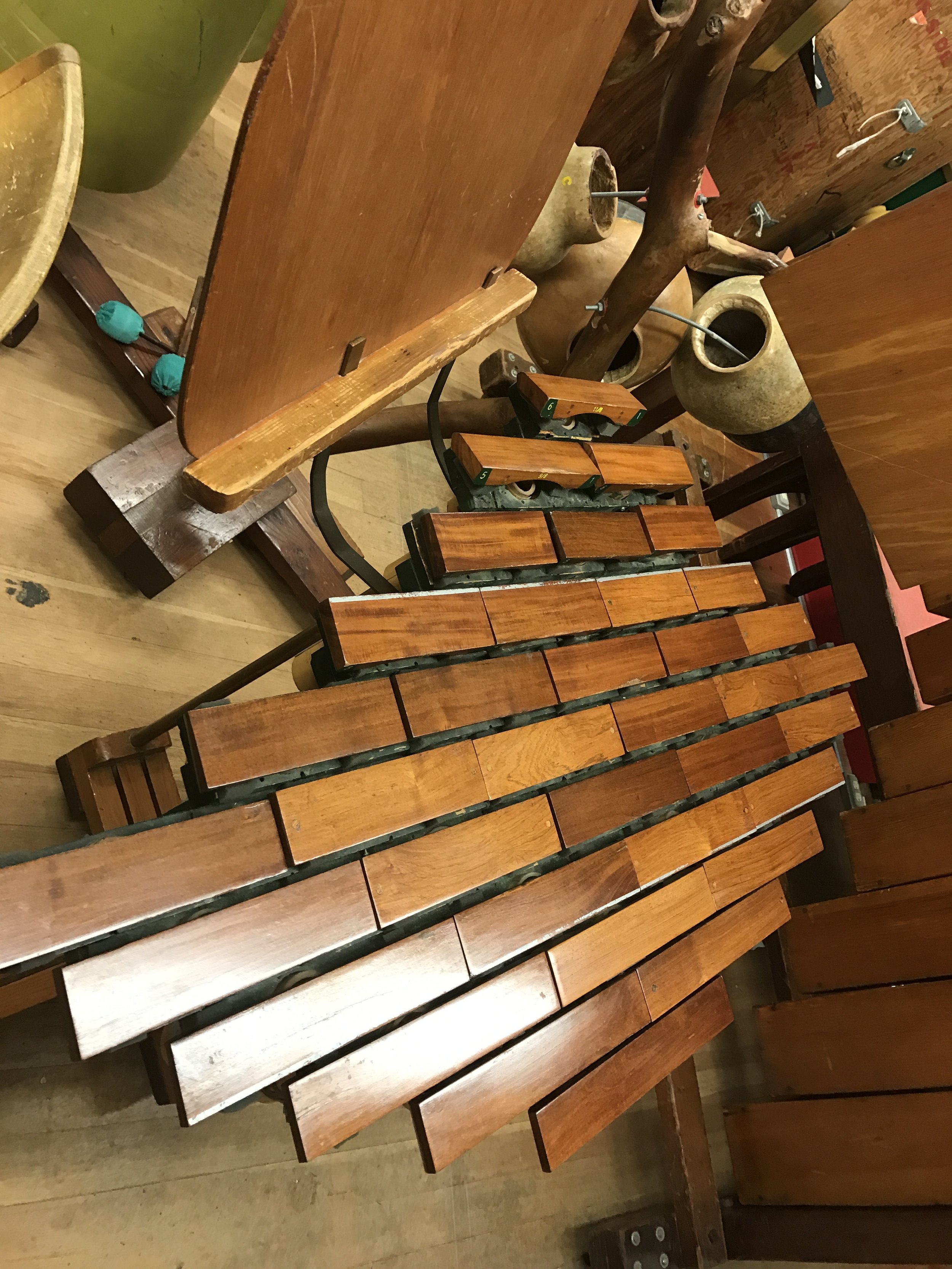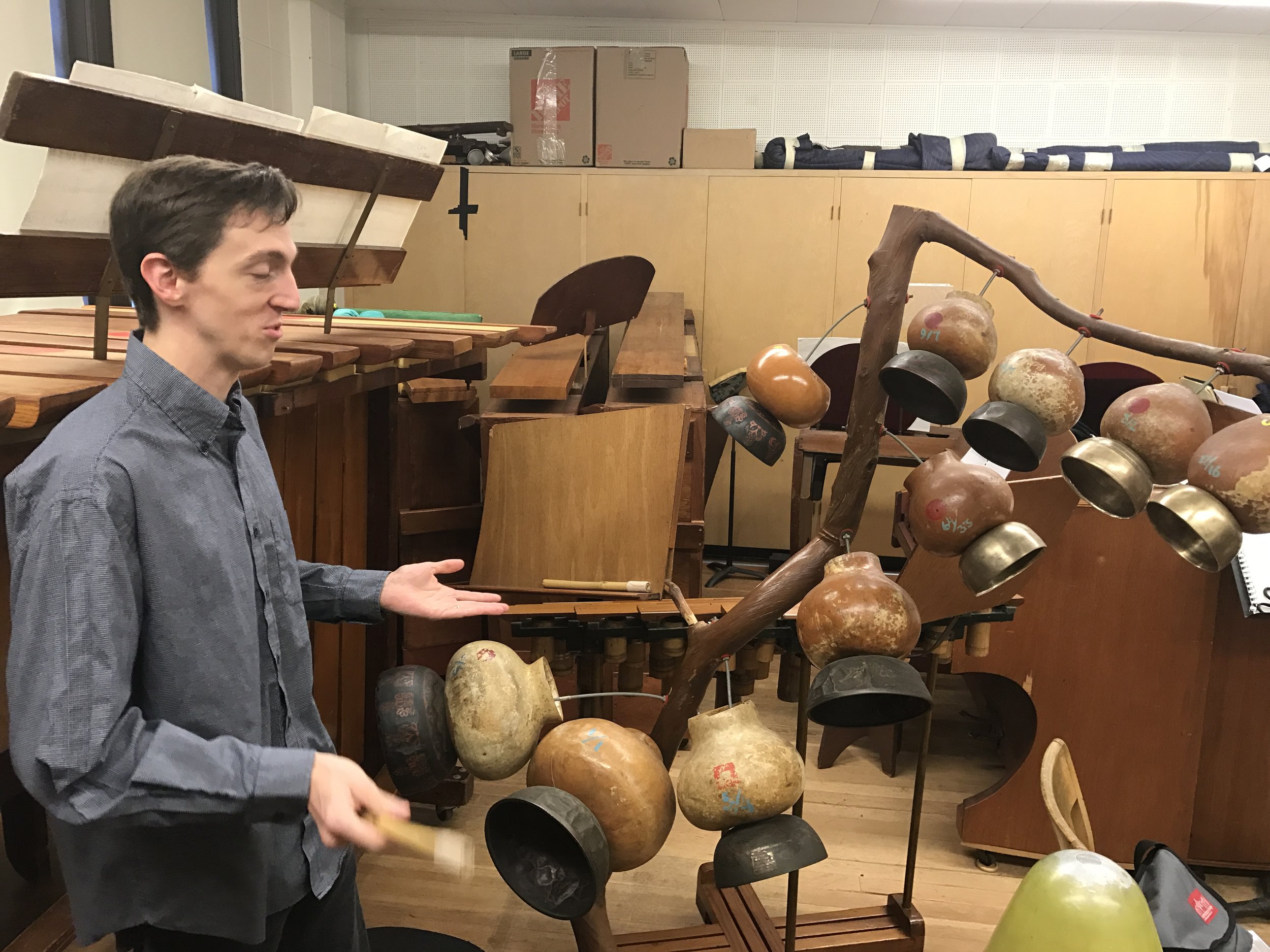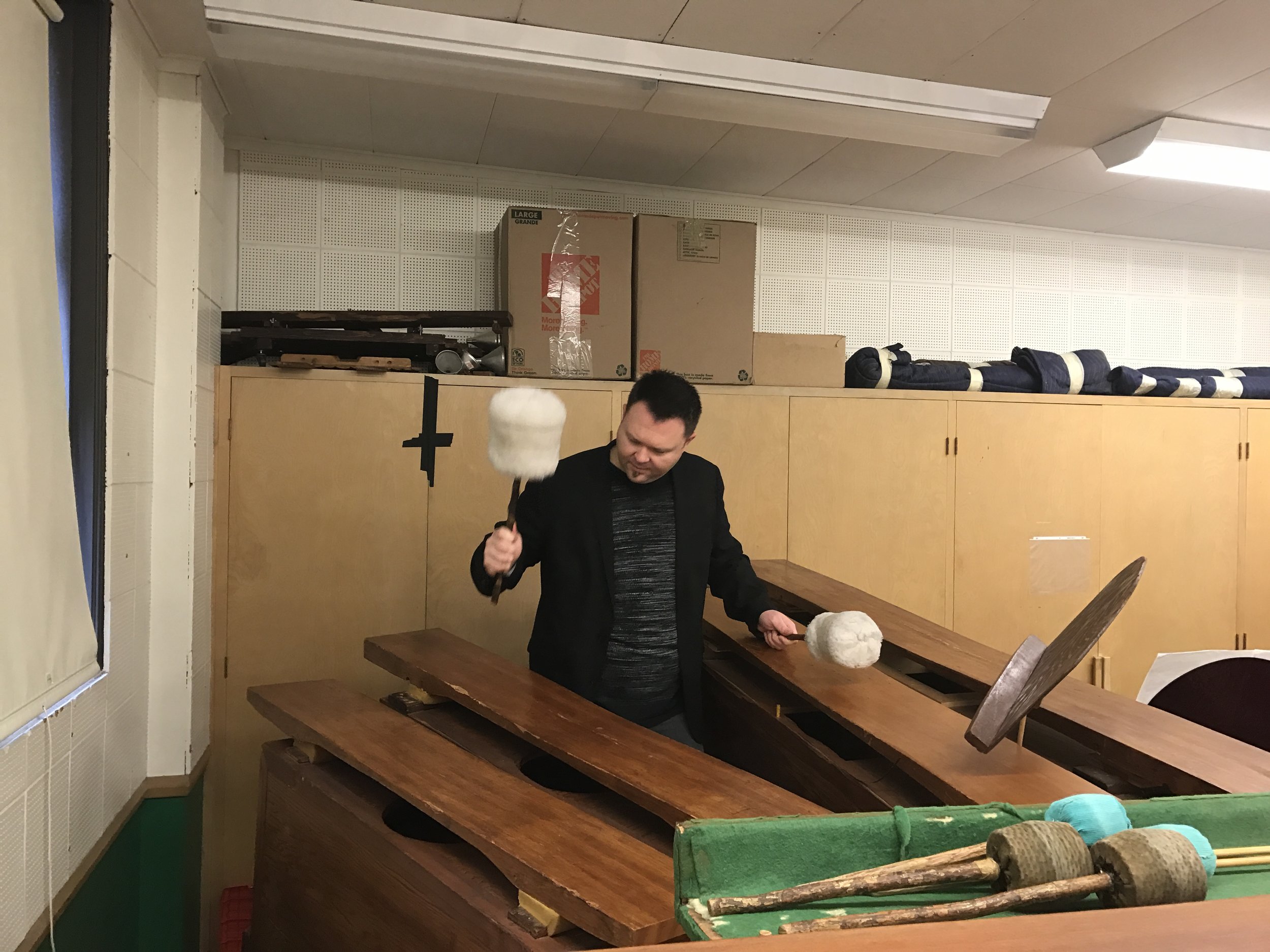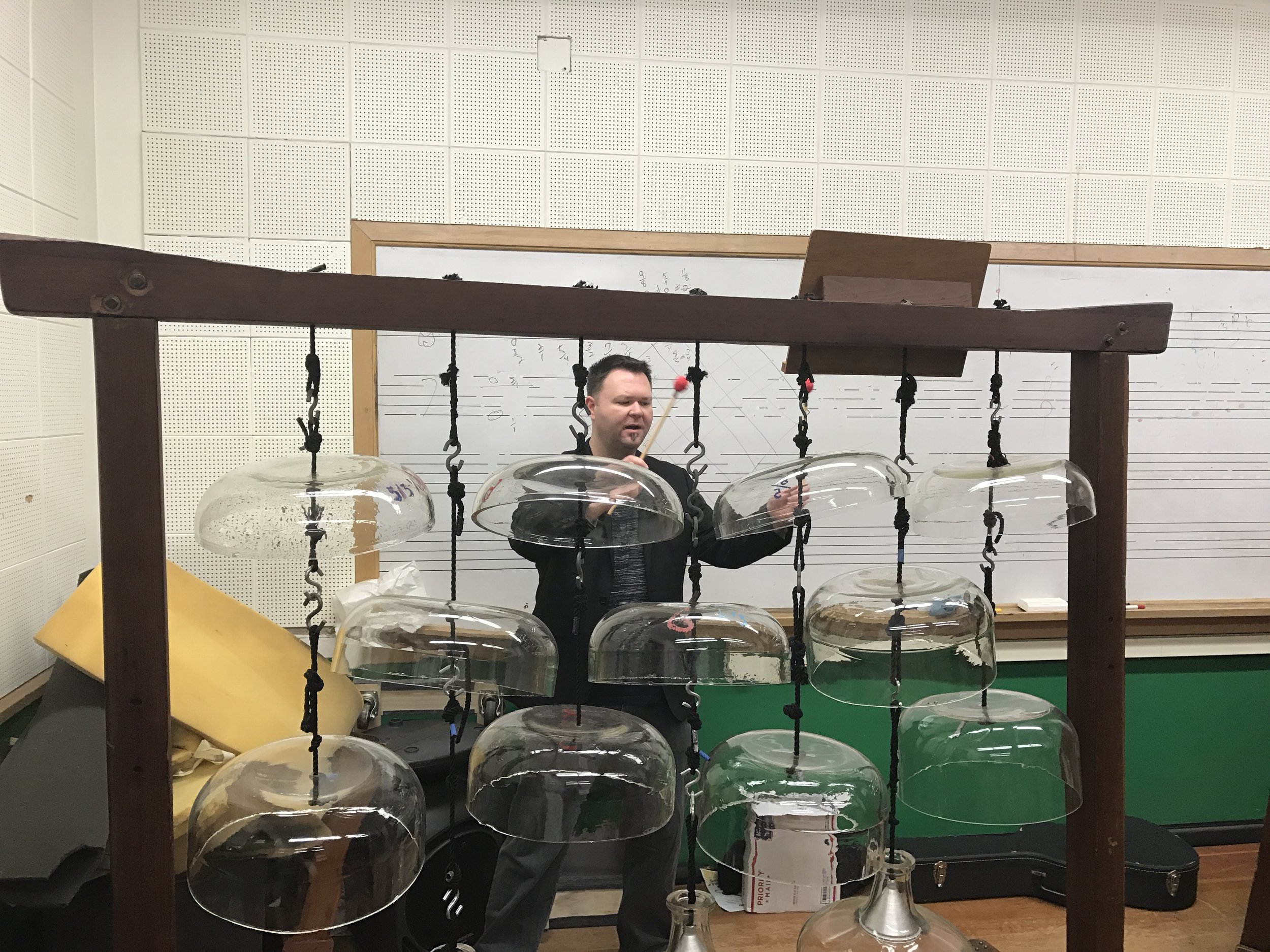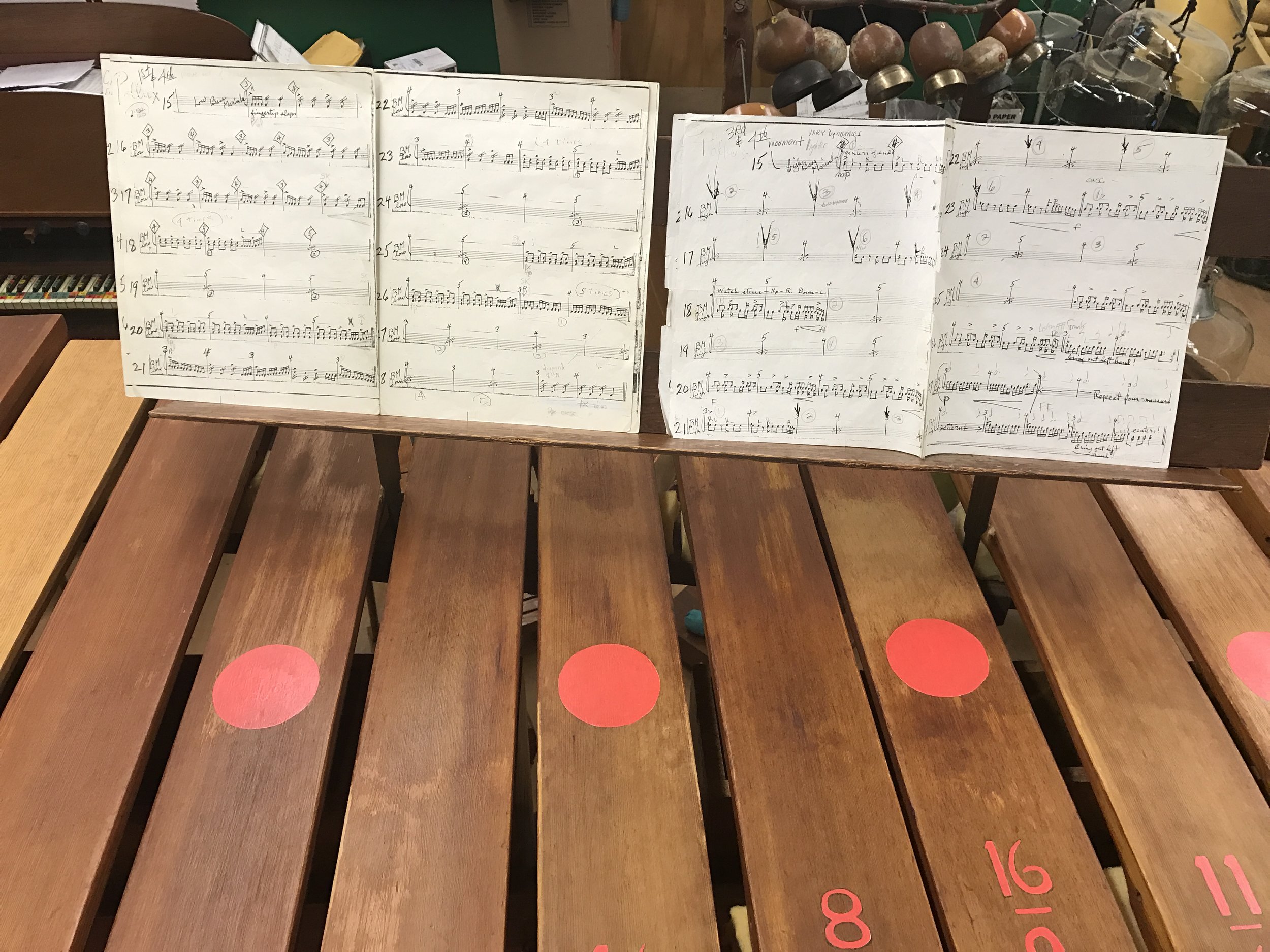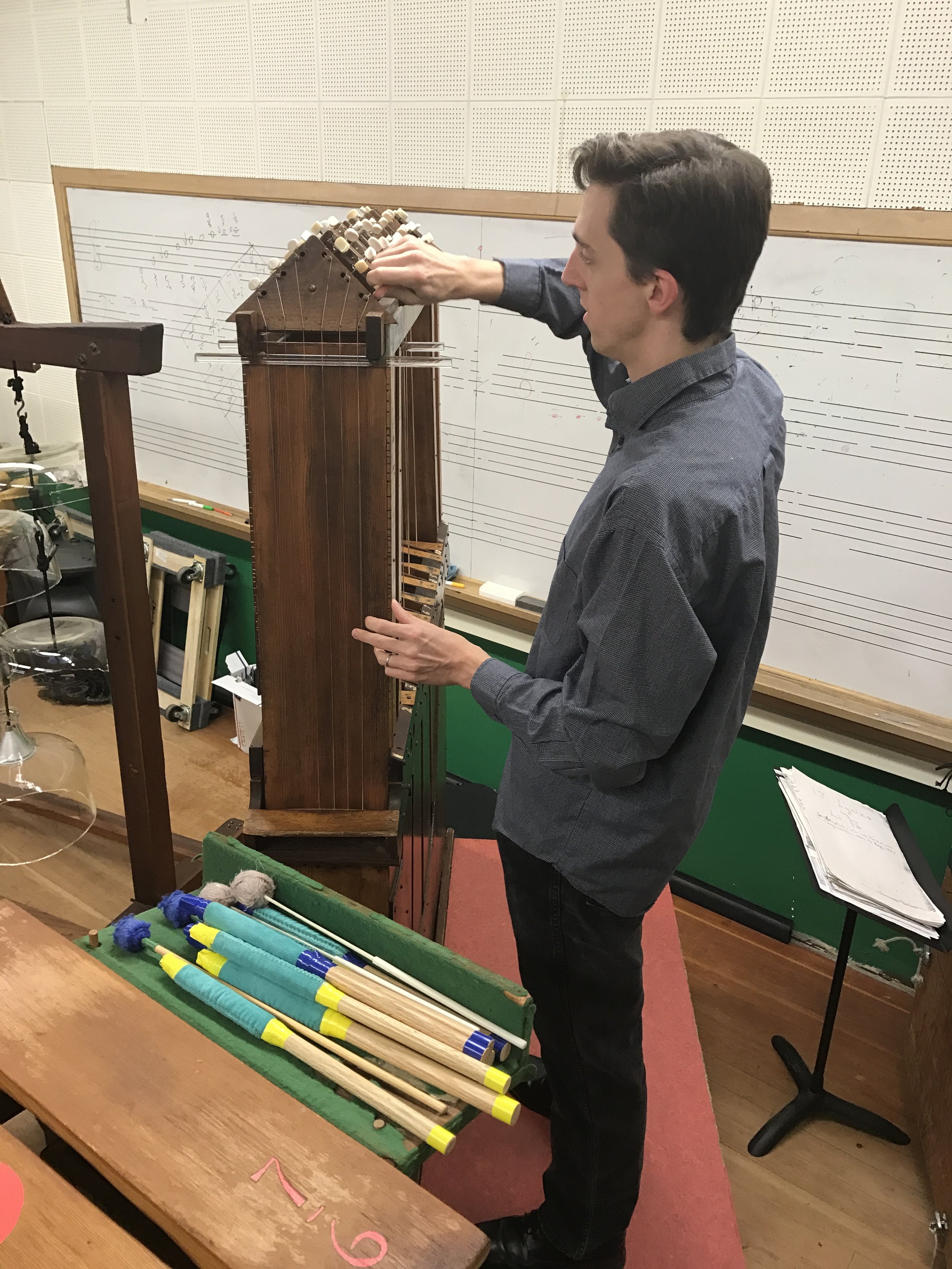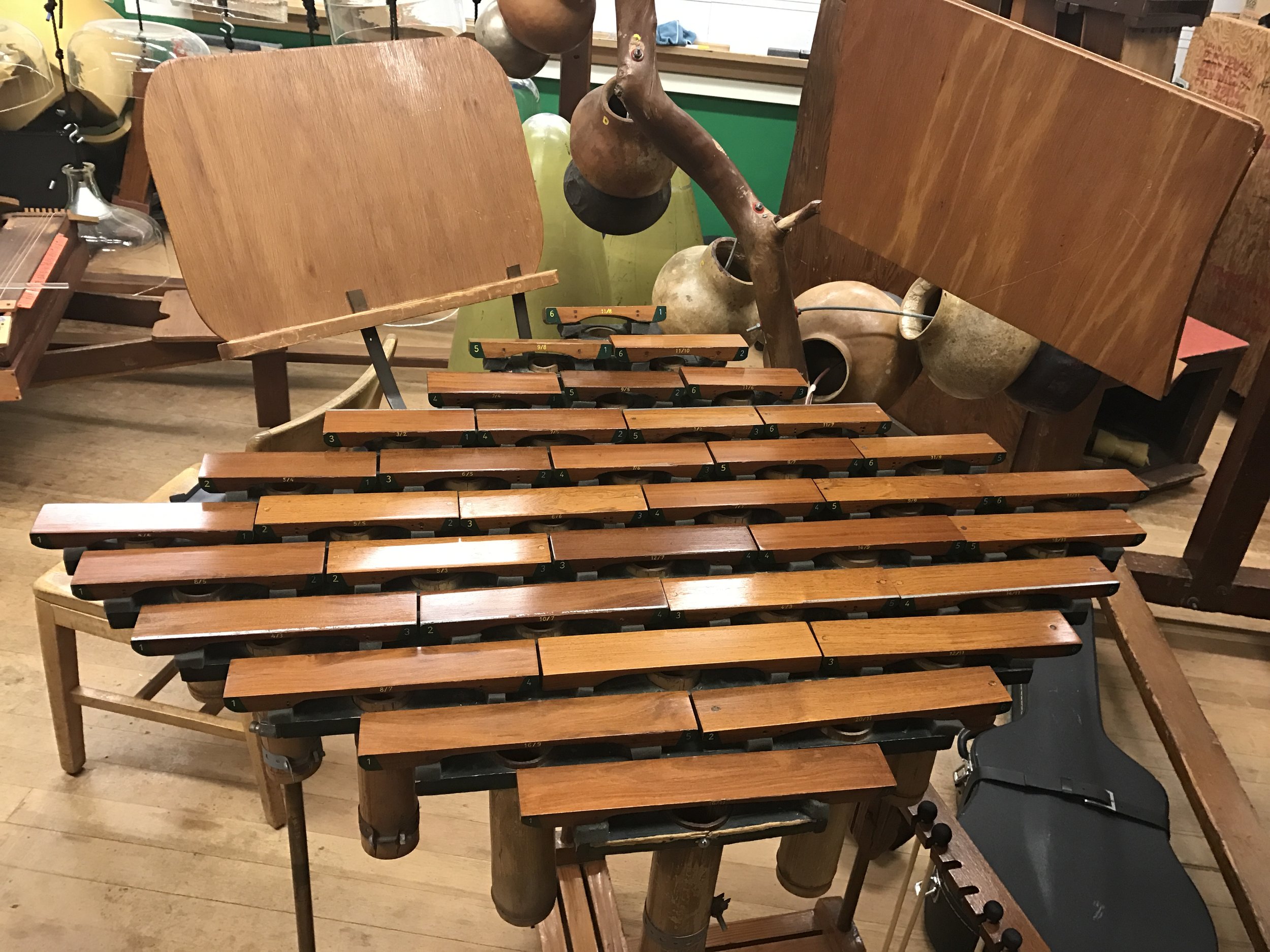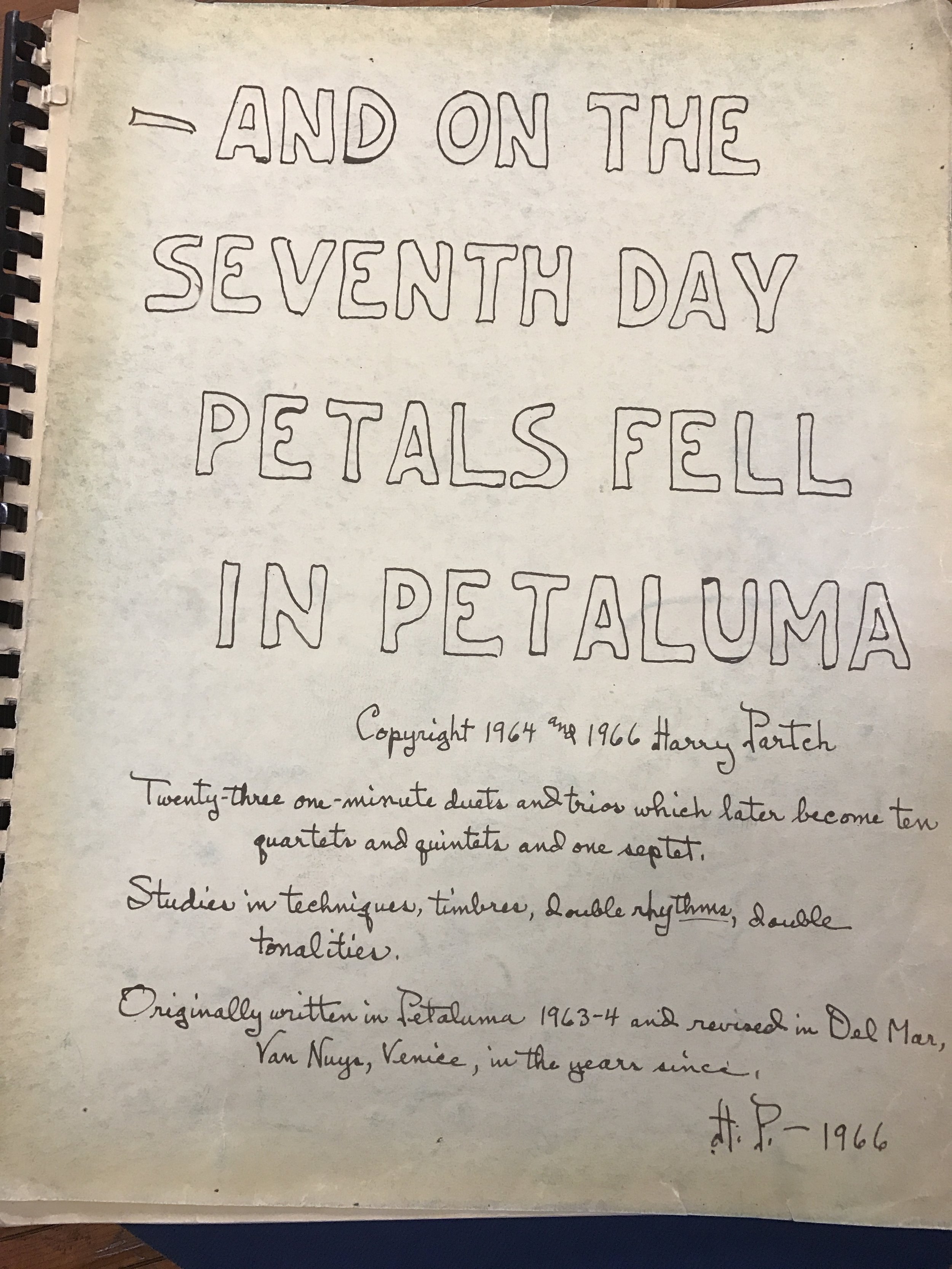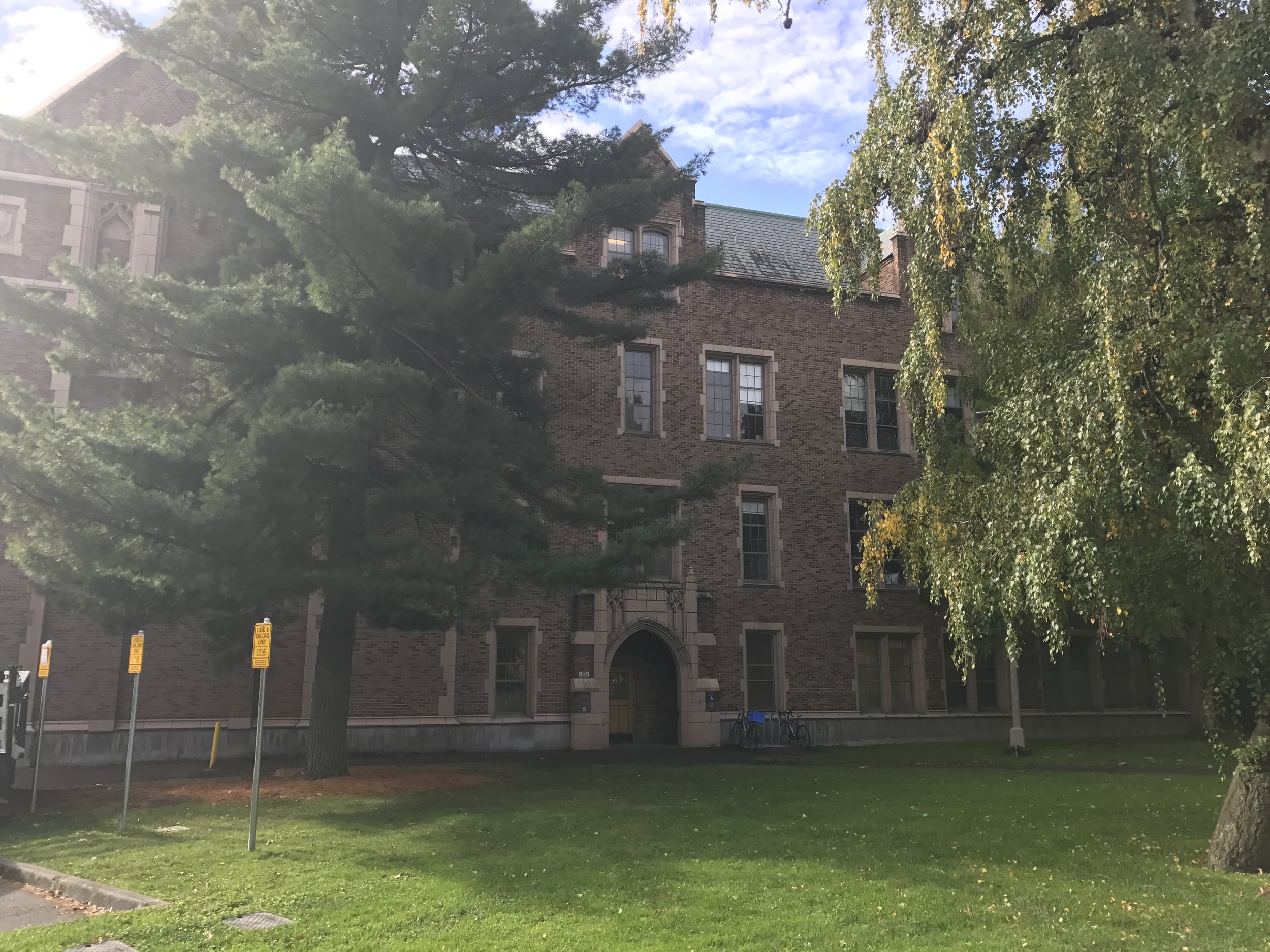Episode 51: Tony Boutté and Zachary Wadsworth
Tony Boutte
Zachary Wadsworth, photo credit: Mingzhe Wang
This episode features a conversation that I had with composer Zachary Wadsworth and singer Tony Boutté during the 56th Annual Contemporary Music Festival on the campus of Sam Houston State University, where Tony and I are on faculty.
Composer Zachary Wadsworth writes music that is vivid and sometimes an evocative mixture of old and new. His music has been performed around the world by groups including the Boston Metro Opera, the Tokyo Cantat, and the Buffalo Philharmonic Orchestra. With recent publications by Novello, G. Shirmer and E.C. Shirmer and airings on NPR’s Performance Today, his music has been widely broadcasted and distributed. Recordings are available on Gothic Records, Albany Records, and Innova.
Tenor Tony Boutte has established himself as a first-rate singer of many styles, including opera, art song, oratorio, and chamber music from the Baroque to the music of our time. Tony is also the artistic director of New American Voices, an initiative created to champion and perform new American works for voice through the collaboration of singer and composer. And it is that project, which was a featured component of our Contemporary Music Festival, that brought us together for our conversation.
The last song in the new cycle Parlo(u)r Songs composed by Zachary for Tony (which Tony also premiered at the festival) is "A Perfect Day," featured here in the film Remember the Night (1940):
Here is a great link to a choral work by Zachary:
Tony sings Douglas J. Cuomo's Winter's Journey:
Tony Boutte (vocals) with Philip Glass (piano) conclude their performance of the third act from Glass’s Satyagraha Opera, “The Newcastle March.” Performance made at “Satyagraha: Gandhi’s ‘Truth Force’ in the Age of Climate Change” presented by the Garrison Institute on April 13, 2008 at the Cathedral Church of Saint John the Divine in New York City.











